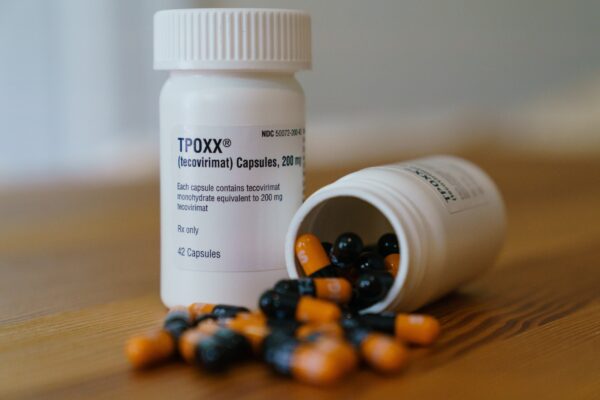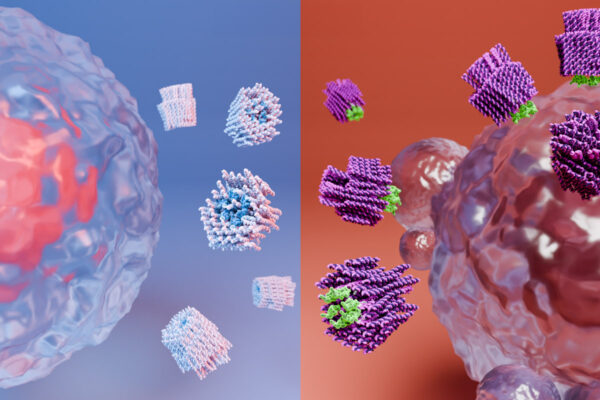Public health experts want Coca-Cola and the Olympics to break up
Scientists, activists, and ordinary petitioners want the Olympics to break with Coca-Cola, comparing it to the tobacco companies that long sponsored the Games. They aren’t holding their breath.

PARIS, FRANCE - JULY 21: Bottles of Coca-Cola are seen during the Paris 2024 President and CEO press conference at the Main Press Centre on July 21, 2024 in Paris, France. (Photo by Pascal Le Segretain/Getty Images)PHOTOGRAPH: PASCAL LE SEGRETAIN/GETTY IMAGES
The Coca-Cola Company is the longest-standing sponsor of the Olympic Games—a relationship dating so far back that Coke still had cocaine in it when it started. Today, Coca-Cola spends an estimated $20 million every year to associate its brand with that of the Olympics. Whatever its positive effects, the deal hasn’t convinced everyone of the company’s virtues, and calls from public health experts for the International Olympic Committee to end the partnership have grown louder over recent years. Increasingly, they’re reminiscent of successful campaigns to ban Olympic tobacco sponsorships in the 1980s.
The tobacco ban and the ever-growing distance between the Games and alcoholic beverages show a seeming consensus that the Olympics, which shine a spotlight on the fittest people alive, shouldn’t be promoting certain products with bad effects on public health. Sugary beverages—which experts link directly to type 2 diabetes, a condition that affects an estimated 462 million people around the world—fit the profile. The 2024 Olympics are in fact being sponsored by Sanofi, a pharma company that researches diabetes and potential treatments, and are therefore sponsored by both a company that creates cures for type 2 diabetes and one that directly contributes to the global epidemic.
“All sugar beverages are bad,” says Robert Lustig, a pediatric neuroendocrinologist who calls fructose, one of sugar’s two constituent molecules, a “metabolic mitochondrial poison” associated with obesity, diabetes, hypertension, heart disease, cancer, dementia, fatty liver disease, polycystic ovarian disease, and what’s known as leaky gut. ”It’s just that Coca-Cola’s behavior is among the most egregious.”
The benefits of the partnership between Coca-Cola and the Olympics go two ways. “The most elite athletes in the world are standing up there and holding bottles of Coca-Cola,” says Marian Nestle, a professor of nutrition, food studies, and public health at New York University. “What better advertising could you possibly have? It deflects attention away from the role of these foods, as athletes are really healthy, otherwise they wouldn’t be athletes.”
Among the most vocal organizations demanding a stop to the collaboration is the Centre for Science in the Public Interest, or CSPI. It’s part of the international Kick Big Soda Out of Sport petition campaign, which launched on July 25th of this year, and is supported by 66 partner organizations. (“The IOC’s association with Coca-Cola is undermining its noble vision to use sports to build a better world,” reads the CSPI’s website.)
“We’re really excited for consumers around the world and probably lawmakers who are seeing this to think about the unhealthy impacts of Coca-Cola on both human health and on our planet,” says Nancy Fink, the campaign manager against sugary drinks at CSPI.
Tobacco companies capitalized on the Olympics’ cultural impact for almost a century, dating from the 1896 birth of the modern games. In 1984, Marathon was the official cigarette of the Los Angeles Olympics. But in 1987, after a campaign to ban smoking and tobacco advertising at the Olympic Games led by physician John Read, the Calgary Winter Olympics became the first smoke-free games.
Since then, every Summer and Winter Olympics has adopted a strict smoke-free policy and, since 2010, a complete tobacco-free policy. Smoking is not permitted at any Paris 2024 venues except in designated areas—a rule that extends to vaping.
Alcoholic beverage companies are another category of controversial Olympic sponsors, from Molson Brewery at the 1976 Montreal Olympics to Heineken at the 2004 Athens games.
Though the IOC is partnered with AB InBev, the world’s leading brewer, Corona Cero—a zero-alcohol drink—is the global beer sponsor of the Paris Olympics. The Olympic Committee says this highlights both organizations’ “commitment to responsible consumption and a better world.”
Efforts like the Kick Big Soda Out of Sport campaign aren’t coming out of nowhere. In the 2012 London Olympics, Coca-Cola’s sponsorship, which featured various promotional activities focused on youth engagement, faced significant backlash. And in 2021, the company’s sponsorship changed; Coca-Cola now has a joint “Olympic Partner,” or TOP, agreement with Mengniu, a Chinese dairy-product company, that makes them the exclusive nonalcoholic beverage sponsors of the Games. (The TOP programme is the Olympics’ highest level of sponsorship.)
“Coca-Cola gets positively connected with a dairy food company and the ‘health halo’ that comes with that,” says Joe Piggin, senior lecturer in sport Policy at Loughborough University. Therefore, though a joint sponsorship may seem to lessen the significance of Coca-Cola’s funding, strategically this move actually leverages the company’s sponsorship and future longevity.
From 2021 to 2032 (when their contract is up), the joint sponsors will pay an estimated total of $3 billion to the IOC. Coca-Cola’s 14-person athlete roster was revealed in the lead-up to the 2024 games. The face of this campaign is this image, in which the athletes hold bottles of Coca-Cola’s drinks. Certain athletes hold full-sugar Coca-Cola itself, which has 53 grams of sugar per 500 milliliter—almost double the recommended daily sugar intake for an adult.
Many of the athletes hold Powerade Original, another of Coca-Cola’s drinks, which contains 5.8 grams of sugar per 600-milliliter bottle, almost 20 percent of the recommended daily intake. (Powerade is also the official drink of the US Olympic team.)
Experts have said that this marketing strategy mirrors Olympians of the past hawking cigarettes. A recent project by the Centre for the Study of Tobacco and Society investigated this, noting that Harold “Dutch” Smith, a high-diving champion, was quoted in a 1935 Saturday Evening Post ad saying, “Camels don’t get your wind.”
“If a cigarette company tried to run a commercial on network TV during the Olympics, there would be such an outcry. It [should be] no different for Coca-Cola,” says Lustig. (“The Coca-Cola Company provides a wide range of beverage options that include dairy and juice drinks as well as water, tea, coffee, and sparkling beverages, with many sugar-free options available,” an IOC spokesperson tells WIRED.)
“We urge sports organizations to stop promoting unhealthy food and drink and work with health experts to create a healthier food environment,” said Zoe Davies, a nutritionist from Action on Sugar, in a statement issued to WIRED.
Coca-Cola did not respond to WIRED’s request for comment. ”The company has used its front groups to advance the argument that the lack of physical exercise and not its sugary drinks are fueling an obesity crisis,” says researcher Ashka Naik from Corporate Responsibility. However, Coca-Cola has been criticized for its manipulation of science to justify this shifting of blame.
Experts that WIRED spoke with consistently held that Coca-Cola should be the next Olympic sponsor to go; however, they don’t expect this to happen anytime soon.
Many experts suggested that a shift shouldn’t be left to the organizations themselves. In order to stop sports organizations from “taking money from ultra-processed food companies,” there must be “public policy measures,” says Lustig. “When there are more votes than dollars, that’s when things will change.”
Read more on wired.com



